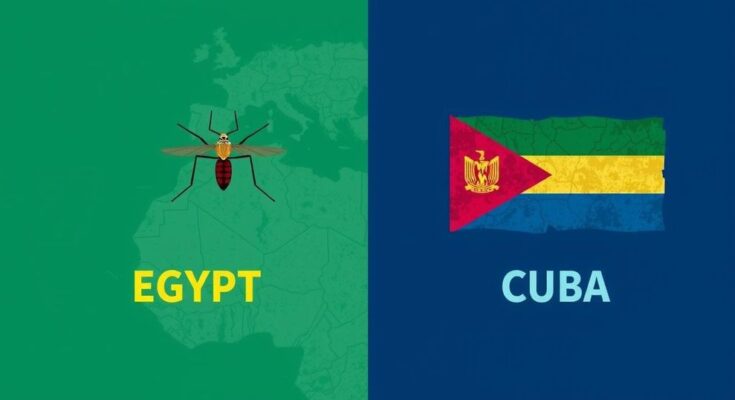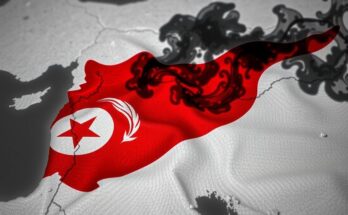The WHO has certified Egypt as malaria-free, a significant achievement in global health. In Cuba, a tropical storm has led to widespread power outages, prompting UN support efforts. In Mozambique, violence following election disputes raises concerns for political stability, as UN Secretary-General António Guterres calls for calm. South Sudan suffers severe flooding, impacting thousands, with the WHO mobilizing emergency health assistance.
The World Health Organization (WHO) recently recognized Egypt as malaria-free, marking an important milestone in the battle against this ancient disease that has afflicted the country for centuries. Tedros Adhanom-Ghebreyesus, the WHO Director-General, expressed his congratulations, stating, “Malaria is as old as Egyptian civilization itself, but the disease that plagued pharaohs now belongs to its history and not its future.” Egypt’s success positions it alongside only two other nations in the Eastern Mediterranean region – the United Arab Emirates and Morocco – that have achieved this certification. In total, 44 countries and one territory worldwide share this honor. Tedros highlighted the significance of Egypt’s accomplishment as an inspiration for other nations, emphasizing the impact that adequate resources and tools can have on global health initiatives. Meanwhile, in Cuba, the United Nations is poised to provide support following extensive power outages affecting approximately 10 million citizens due to a failing power grid. This crisis is compounded by the effects of Tropical Storm Oscar, which is bringing considerable rainfall and may lead to flooding. The UN has announced its readiness to assist and has activated its Emergency Technical Team to coordinate efforts on the ground. In Mozambique, UN Secretary-General António Guterres called for calm amid unrest sparked by the assassination of two opposition figures linked to the recent elections. Guterres urged for a swift investigation into these violent acts, emphasizing the importance of peace and stability during this sensitive period in Mozambique’s political landscape. In South Sudan, the WHO is actively engaged with local authorities addressing severe flooding that has overwhelmed the nation, displacing thousands and disrupting critical healthcare services. With the rainy season exacerbated by climate change, the humanitarian crisis continues to deepen, prompting WHO to deploy emergency health kits to assist affected populations. The recent global news reflects significant developments in health, humanitarian crises, and political stability, showcasing both accomplishments and challenges faced by nations in their quest for safety and health equity.
The recent events reported highlight critical public health and humanitarian issues affecting nations primarily in the Eastern Mediterranean region and parts of Africa. Egypt’s certification as malaria-free represents a notable achievement in disease eradication efforts led by the WHO, while concurrently, Cuba grapples with infrastructure failures exacerbated by natural disasters. Mozambique’s political tensions following electoral violence and South Sudan’s unprecedented flooding have underscored the need for international support through organizations such as the UN and WHO. These incidents reflect the ongoing challenges faced by many countries in maintaining political stability and ensuring the health and safety of their populations. Moreover, the effects of climate change are becoming increasingly evident, influencing both public health scenarios and natural disasters, calling for a coordinated global response to manage these crises effectively.
In summary, the articles discussed present a mixed landscape of global health and governance issues, illustrating significant milestones alongside pressing challenges. The WHO’s recognition of Egypt as malaria-free stands as a beacon of hope in public health achievements, contrasting with Cuba’s struggles against power failures and the necessity for UN intervention. Similarly, Mozambique’s political violence calls for urgent action to maintain peace, while South Sudan faces dire conditions due to flooding, prompting WHO’s emergency support efforts. These narratives collectively emphasize the importance of international cooperation and the need for resilient healthcare systems to navigate such challenges.
Original Source: news.un.org




